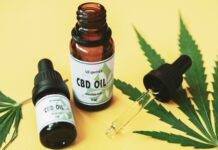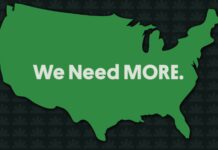Buried in the chaos and hype of the holidays and the beginning of 2019 was the United States government’s passage of the 2018 Farm Bill. According to the Hill, the Farm Bill will provide “billions of dollars in aid to U.S. farmers hurt by the trade war with China.” But more importantly, the bill also includes a provision that basically eliminates hemp from its status as a Schedule I drug by the Drug Enforcement Agency.
The Future of Hemp in America
CBD (cannabidiol) derived from hemp has seen rapidly increasing levels of popularity in recent years. CBD is a popular anti-inflammatory compound that can be derived from hemp or other cannabis plants. There are actually number of other uses for hemp. Hemp is an incredibly strong fiber that can be used to produce clothing, protein powder, and a myriad of other products. What the legalization of hemp production in the United States does is provide a massive boon to farmers and those who work in the cannabis industry.
Gleam Law, a cannabis law group located in Seattle, Portland, San Francisco, and Los Angeles is at the forefront of the crossroads between cannabis and the legal system.
Orion Inskip, lead attorney on CBD and hemp-related matters for Gleam Law says,
“With the passage of the 2018 Farm Bill we are likely to see the CBD bubble finally burst. Since 2014, the CBD industry has been operating in a regulatory vacuum that allowed speculators and other shady characters to take advantage of the lack of government oversight to make a quick buck off of an unsuspecting public looking for the health benefits purported by CBD advocates around the world.” He adds that, “Although Hemp derived CBD is no longer a controlled substance, it still qualifies as a food, drug, or cosmetic under the FDA’s rules and the FDA was quick to announce that they are retaining the authority to regulate CBD in all its forms.”
What Inskip’s insight provides is a look at the future of CBD regulation in the United States. As he mentions, the FDA will regulate all forms of CBD so companies that look to enter the ready-to-explode CBD and hemp market will be forced to comply with the FDA’s stringent regulations. Unfortunately for many CBD processors, what Inskip believes this will do is make it easier for the “giant supplement companies, who already comply with the FDA’s regulations in their other products to add FDA complying hemp CBD to their products than it will be for the fly by night CBD processors to bring their operations into FDA compliance.”
A Bubble on the Verge of Bursting?
Inskip sees the rush for hemp licenses causing a sharp drop in the price for CBD that will
“leave speculators to compete with the established supplement brands at an ever-diminishing market price.”
The legalization of hemp through the 2018 Farm Bill will provide consumers with a wider selection of vastly cheaper products. However, it will also force CBD producers to fight tooth and nail to meet FDA regulations and carve out a market for their own products in an increasingly saturated market. How this new frontier of legal hemp cultivation and federal CBD production will play out remains unknown, but there is hope that it can be a positive progression for both businesses and consumers.

Lane is based in Southern California and is a content curator for Medical Marijuana 411. He spends his free time playing guitar and walking on the beach. He focuses his research into finding informative stories that can help medical marijuana patients better understand their diverse medicine.











